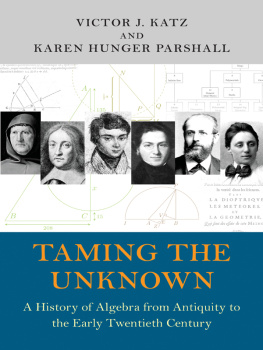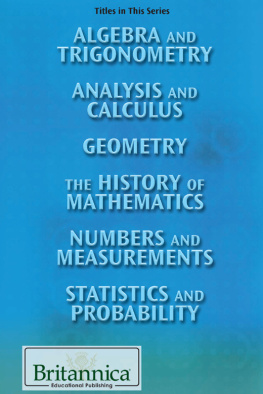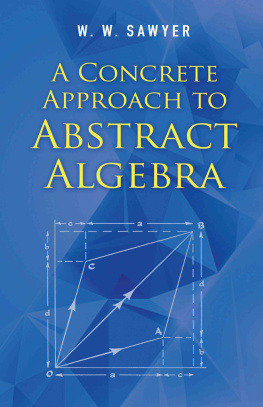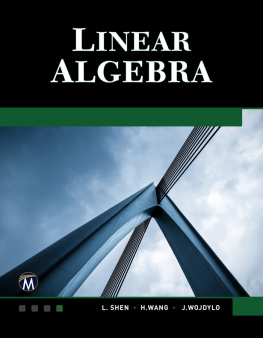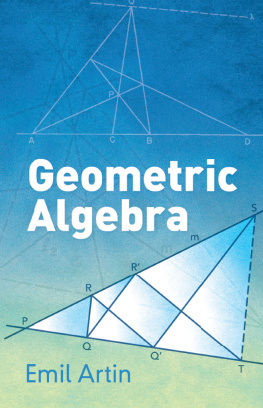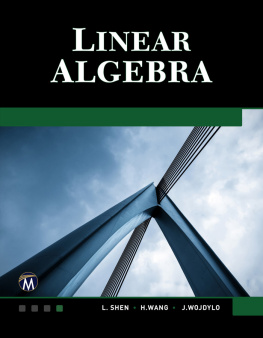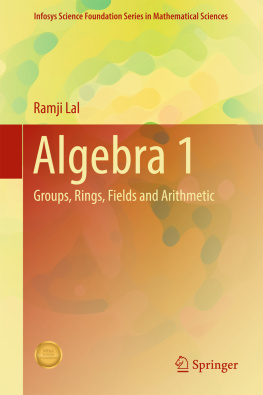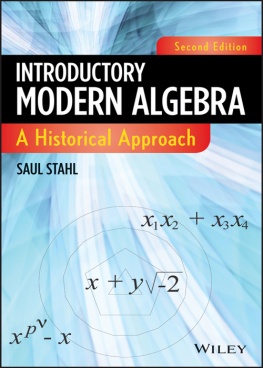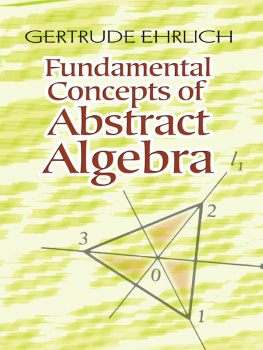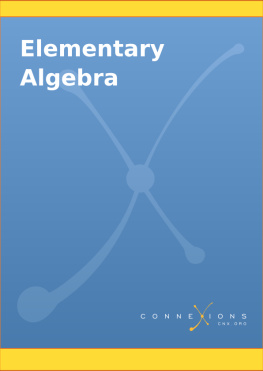
TAMING THE UNKNOWN
TAMING THE UNKNOWN
A History of Algebra from Antiquity to the Early Twentieth Century
VICTOR J. KATZ AND KAREN HUNGER PARSHALL
PRINCETON UNIVERSITY PRESS
PRINCETON AND OXFORD
Copyright 2014 by Princeton University Press
Published by Princeton University Press, 41 William Street,
Princeton, New Jersey 08540
In the United Kingdom: Princeton University Press, 6 Oxford Street,
Woodstock, Oxfordshire, OX20 1TW
Jacket images: Background images: Title page of Discours de la method by Ren Descartes, from the Plimpton Collection of the Rare Book and Manuscript Library, Columbia University. Problem on parabolas from Elementa curvarum linearum by Jan de Witt, in the 1659 edition of Descartess Geometria, from the David Eugen Smith Collection of the Rare Book and Manuscript Library, Columbia University. Mathematicians, left to right: Luca Pacioli, Pierre de Fermat, variste Galois, James Joseph Sylvester, Georg Frobenius, Emmy Noether. Detail portrait of the mathematician Luca Pacioli and an unknown young man by Jacopo deBarbari. Museo Nazionale di Capodimonte, Naples, Italy. Scala/Ministero per I Beno e le Attivit culturali/Art Resources, NY. Image of Noether courtesy of Drs. Emiliana and Monica Noether.
All Rights Reserved
Library of Congress Cataloging-in-Publication Data
Katz, Victor J.
Taming the unknown: history of algebra from antiquity to the early twentieth century / Victor J. Katz and Karen Hunger Parshall.
pages cm
Includes bibliographical references and index.
ISBN 978-0-691-14905-9 (hardcover: alk. paper)
1. AlgebraHistory. I. Parshall, Karen Hunger, 1955- II. Title.
QA151.K38 2014
512dc23
2013024074
British Library Cataloging-in-Publication Data is available
This book has been composed in ITC New Baskerville
Printed on acid-free paper.
press.princeton.edu
Typeset by S R Nova Pvt Ltd, Bangalore, India
Printed in the United States of America
2 4 6 8 10 9 7 5 3 1
We dedicate this book to our spouses,
PHYLLIS KATZ
and
BRIAN PARSHALL,
and to our parents,
BESS and MARTIN KATZ (in loving memory)
and
JEAN KAY MIKE and MAURICE HUNGER
Contents
Ren Descartes and The Geometry |
Acknowledgments
T he present book came about almost serendipitously. In 2006, the first author reviewed Unknown Quantity: A Real and Imaginary History of Algebra, a work on the history of algebra by John Derbyshire. Although very well written, that book contained so many errors of fact and inadequacies of interpretation that it would have been a disservice to let it go unchallenged. In January of 2008, the first author heard the second authors invited hour lecture on the history of algebra at the Joint Mathematics Meetings in San Diego. Realizing that her ideas were similar to those he had expressed in his own invited lecture on the history of algebra at the International Congress of Mathematics Education (ICME) in Copenhagen in 2004, he asked if she would be interested in jointly writing a book on the history of algebra. Curiously, although we live only about two hours apart, we only finally met to outline our ideas and to agree to submit the project to the Princeton University Press when we both attended a meeting of the International Study Group on the Relations Between History and Pedagogy of Mathematics in Mexico City in July of 2008. The present book is the fruit of our ideas developed over long careers teaching and working on the history of mathematics and, in particular, on the history of algebra.
The first author would like to thank Clemency Montelle and John Hannah for inviting him to the University of Canterbury in Christchurch, New Zealand in the spring of 2011 to lecture on the history of algebra. He was able to develop some of his ideas during those lectures. In addition, both Clemency and John graciously read drafts of several of the chapters of the book and offered many suggestions for improvement. The first author is also grateful to Mogens Niss of Roskilde University, Denmark for inviting him to present a lecture at ICME 10 that gave him the chance further to organize his ideas on the history of algebra. His greatest debt of gratitude, however, is to his wife, Phyllis, for her encouragement over the years, for her many conversations at every hour of the day and night, and for everything else.
We embarked on this book project at the same moment that the second author began a three-year term as Associate Dean for the Social Sciences at the University of Virginia. She would like to thank both Meredith Woo, the Dean of the College and Graduate School of Arts and Sciences, for asking her to serve and all of her colleagues in the Deans Office and in the Division of Social Sciences for their support as she wore the very distinct hats of administrator and researcher. Her special thanks go to Rick Myers and Nancy Bertram for their endless patience and sage advice as she learned the administrative ropes; to Cristina Della Coletta and Jim Galloway, the Associate Deans of Arts and Humanities and of Sciences, respectively, for their friendship and sense of common cause; and to Seth Matula for always reminding her when it was Thursday. Three years of Thursdays and a year-long sabbatical leave later, the book is finished.
The second author is also indebted to her friends and colleagues, Joe Kett in the Corcoran Department of History and Fred OBryant in the Brown Science and Engineering Library, who, although not mathematicians, seemingly never tired of listening to tales of the latest twists and turns in the research and writing that went into the book over what for her, at least, were restorative lunches; to Ivor Grattan-Guinness, Professor Emeritus at Middlesex University and doyen of the history of mathematics, who always challenged her with questions she had not thought to ask; and to her husband and colleague in the Department of Mathematics, Brian Parshall, who read and critiqued the book in manuscript with his algebraists eye.
Both authors extend their heartiest thanks to Greg Hays, John Miller, and Tony Woodman in the Department of Classics and to Elizabeth Meyer in the Corcoran Department of History, all at the University of Virginia, for their help with questions involving both Latin and Greek; to Lew Purifoy and his coworkers in Interlibrary Loan at the University of Virginia for never failing to secure even the hardest-to-find sources; to Jennifer Lee of the Rare Book and Manuscript Division of the Columbia University Library for her assistance in finding most of the manuscript and book pages that serve as illustrations in the text; to Julie Riddleberger, the TEX guru of Virginias Department of Mathematics, for cheerfully and masterfully transforming our often crude sketches into the myriad figures that now illuminate our text; and to the Presss readers, who gave us numerous valuable suggestions for improvement. Last, but certainly not least, we thank our editor, Vickie Kearn, and the staff at Princeton University Press: Quinn Fusting, Vickies assistant; Dimitri Karetnikov, who worked on the figures; Carmina Alvarez, the designer for the internal book design and the jacket; Sara Lerner, the production editor; Alison Durham, the copyeditor; and Rob McCaleb, who drew the maps. All of them worked with us to see the book into hard covers.
Victor J. Katz
Silver Spring, MD
Karen Hunger Parshall
Charlottesville, VA
30 June 2013
See Science 312 (2006), 14731474.
TAMING THE UNKNOWN
Prelude: What Is Algebra?
Next page
